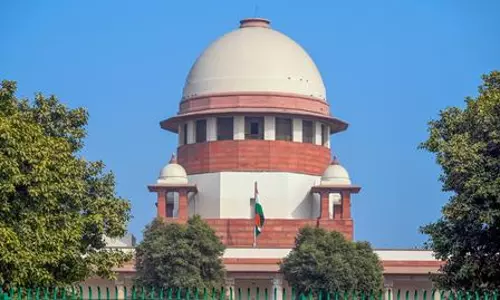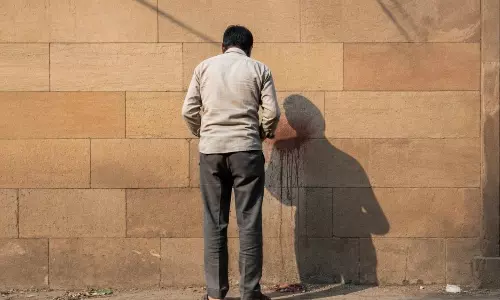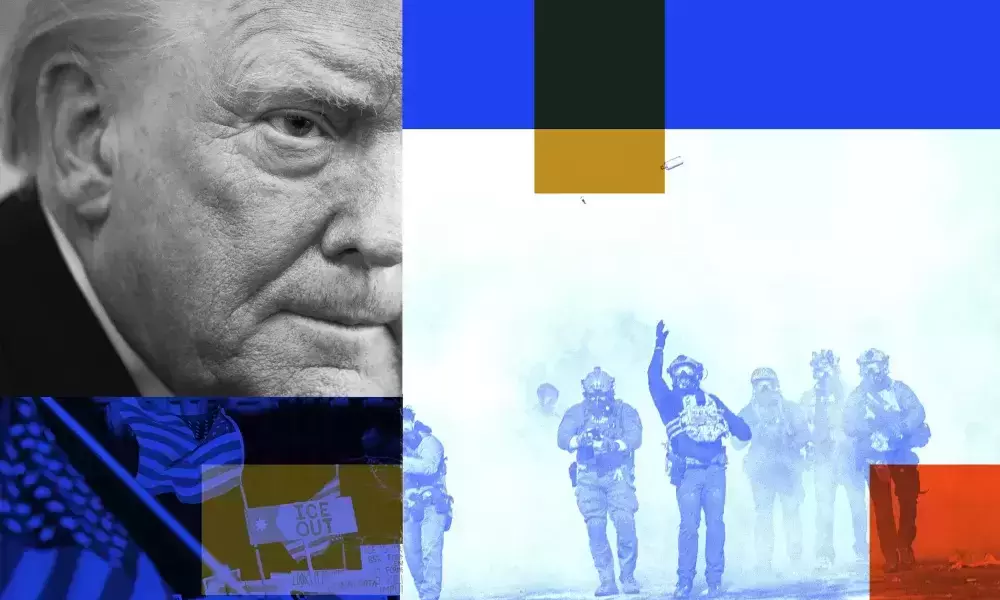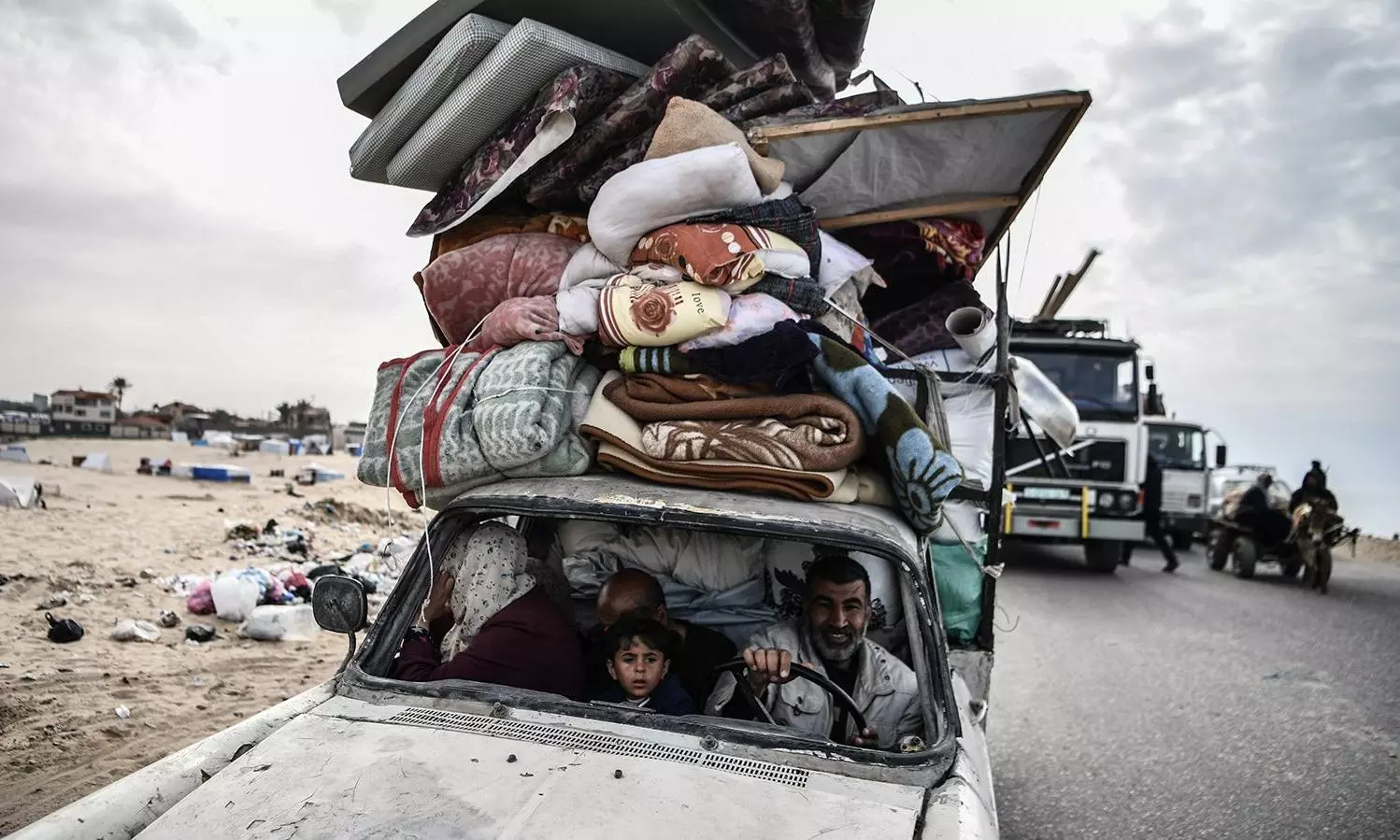
Deaths loom over Rafah as Israel begins to rain bombs
text_fieldsThe celebration in the streets following Hamas's positive response to the ceasefire in Gaza faded away as Israel advanced with its military offensive in the southern city of Rafah, where one million Palestinians sought refuge, triggering an exodus. However, Israel's response cast doubt on the prospect of immediate peace, leading to confusion and anxiety among residents.
Despite celebrations in the streets following Hamas's announcement, Israel opted to press on with its campaign in Rafah, conducting night airstrikes and triggering an exodus of thousands of people from the city. Reports emerged of Israeli tanks advancing near the Rafah crossing, a vital lifeline for humanitarian aid and people travelling between Egypt and Gaza.
While Hamas expressed willingness to engage in further negotiations through Egyptian and Qatari mediators, Israel maintained that the terms proposed by Hamas fell short of meeting its demands. The Israeli military underscored its commitment to exerting military pressure on Hamas to secure the release of hostages and achieve other strategic objectives.
The situation escalated further as talks in Cairo hit an impasse over the permanence of a ceasefire. Israel sought the flexibility to resume military action if necessary, while Hamas insisted on a permanent ceasefire from the outset. Disagreements also surfaced regarding the specifics of a proposed deal, including the release of hostages and the duration of the ceasefire.
As diplomatic efforts faltered, the prospect of a full-scale Israeli offensive loomed large over Rafah. Israeli authorities issued evacuation orders for part of the city, prompting condemnation from Saudi Arabia, which denounced Israel's actions as a "genocide."
The evacuation directive fuelled fears of a humanitarian crisis, with aid agencies warning of the dire consequences of a major Israeli offensive in the densely populated area.
Meanwhile, the United States, a key ally of Israel, voiced concern over the escalating tensions in Rafah. President Joe Biden reiterated the importance of finding a peaceful resolution and emphasized the need for Israel to present a viable humanitarian plan for the displaced Palestinians in Rafah. US officials signalled a willingness to reconsider their policy toward the region if Israel proceeded with an offensive without adequate humanitarian measures in place.
Against this backdrop of geopolitical tension, the people of Rafah faced the grim reality of displacement and uncertainty. Fleeing on foot, donkeys, or overloaded trucks, they sought refuge in neighbouring areas despite the lack of safe havens. With the Gaza Strip already reeling from months of bombardment and humanitarian crises, any escalation in violence threatened to exacerbate an already dire situation.
Humanitarian organizations urged all parties to prioritize the well-being of civilians and work toward a negotiated settlement to end the bloodshed in Rafah and across the Gaza Strip.

















